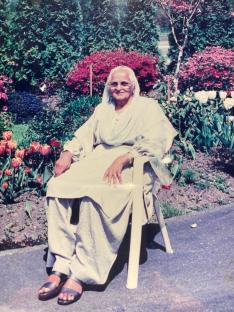- Managing your Practice
-
- Your Benefits
-

Introducing the ultimate Club MD experience
From work to play, and everything in between, we provide you with access to hundreds of deals from recognizable, best-in-class brands, elevating every facet of your life – from practice supports to entertainment, restaurants, electronics, travel, health and wellness, and more. Your Club MD membership ensures that these deals are exclusive to you, eliminating the need to search or negotiate.
Welcome to the ultimate Club MD experience. Your membership, your choices, your journey.
-
- Advocacy & Policy
-
- Collaboration
- News & Events
-

Stay Informed
Stay up to date with important information that impacts the profession and your practice. Doctors of BC provides a range of newsletters that target areas of interest to you.
Subscribe to the President's Letter
Subscribe to Newsletters
-
- About Us
-

Dr Sharon Dodd, family physician, Richmond
April 19, 2022
Doctors of BC: Our stories
I was half way through my first year of family practice residency at the University of Alberta when I received the phone call that my Nani (maternal grandmother) had suffered a major stroke. She was unconscious for the first week, then gradually improved to her conscious aphasic and hemi-paralyzed state. For six years, she remained confined to a hospital bed in a long-term care facility, fully dependent for all her basic daily needs. My Nani was a retired, well-respected elementary school teacher in India. She started teaching in the 1930s while the British monarchy still ruled India. She was the most kind, humble, graceful and talented woman I knew from her era. My heart was broken to see her in her new condition.
 I am sharing my Nani’s story because her experience shaped the way I have practiced family medicine the last 21 years. I learned very early in my career that inadequate care could have extremely dire consequences. My Nani’s family doctor did not treat her hypertension appropriately or pay attention to the pre-stroke warning signs she presented prior to the stroke. I promised myself that I would try my best to prevent a similar outcome in the patients that I cared for. I have sat and listened carefully to the small details each patient shares and tried to offer the most appropriate care for their particular cultural, social and economic situation. I have carefully counseled each patient repeatedly on prevention and treatment. I often find this work exhausting as our patients are not always motivated to make the changes they should. More recently, I find it challenging to spend adequate time with my patients as the current fee system doesn’t compensate for our rising business costs and costs of living.
I am sharing my Nani’s story because her experience shaped the way I have practiced family medicine the last 21 years. I learned very early in my career that inadequate care could have extremely dire consequences. My Nani’s family doctor did not treat her hypertension appropriately or pay attention to the pre-stroke warning signs she presented prior to the stroke. I promised myself that I would try my best to prevent a similar outcome in the patients that I cared for. I have sat and listened carefully to the small details each patient shares and tried to offer the most appropriate care for their particular cultural, social and economic situation. I have carefully counseled each patient repeatedly on prevention and treatment. I often find this work exhausting as our patients are not always motivated to make the changes they should. More recently, I find it challenging to spend adequate time with my patients as the current fee system doesn’t compensate for our rising business costs and costs of living.
I am sad to see that a growing number of British Columbians are without a family doctor, knowing the many pitfalls of episodic care. I am afraid that my Nani’s story will continue to repeat until we make changes to our outdated system. We must offer more support to those family doctors that are willing to take the time to provide effective longitudinal care to their patients.




